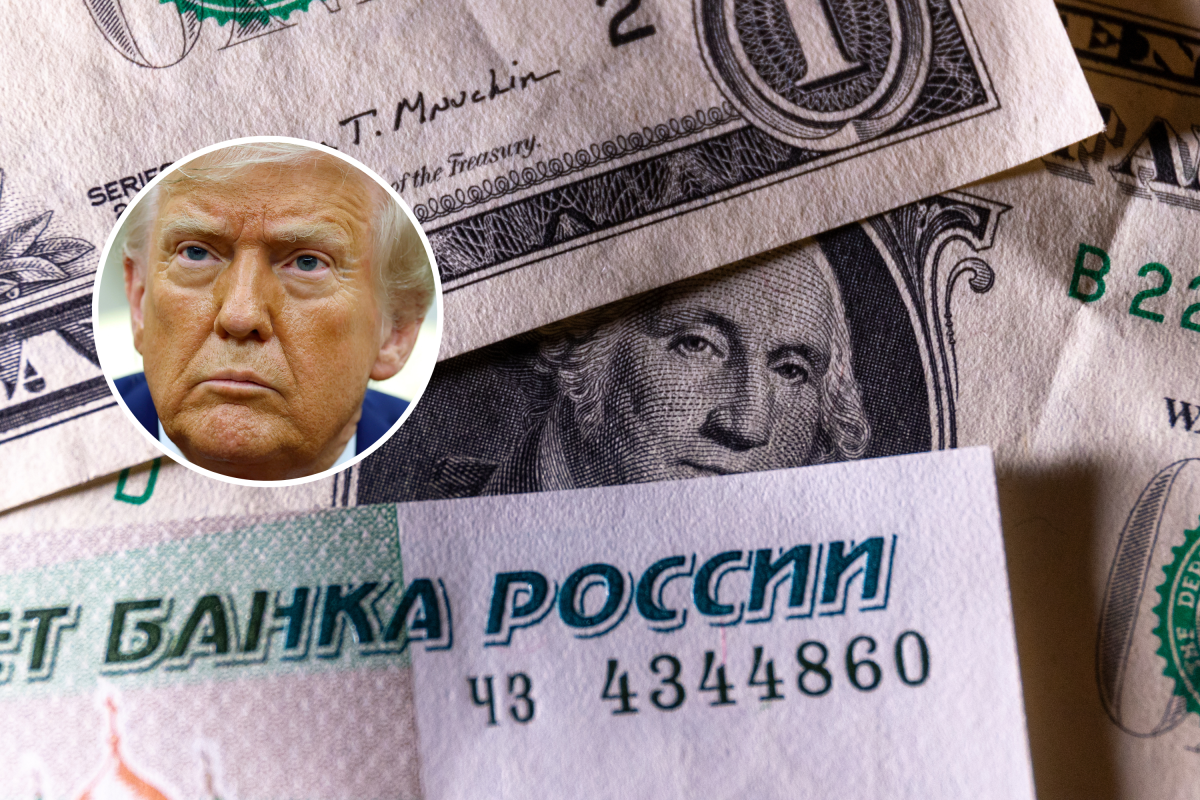The U.S. dollar has long enjoyed its status as the world’s premier reserve currency, though recent trade policies have sparked discussions about its future dominance.
Why It Matters
The dollar’s strength and its related role as the world’s leading reserve currency offer substantial benefits to the U.S. High demand reduces borrowing costs for the U.S. government, ensures that the country can run larger trade deficits without facing a balance of payments crisis, while granting the U.S. significant sway over international financial systems and economic policies.
De-dollarization—countries reducing their reliance on the dollar as both a reserve currency and the primary unit for international financial transactions—could result in increased interest rates and higher borrowing costs for the government, while also taking a toll on America’s international economic leverage.
What To Know
Fears over de-dollarization have been raised in recent days by the administration’s tariff plans, which many warn pose a risk to the currency’s continued strength and historic status.
In a recent article published in Foreign Affairs, a group of academics warned that “clumsy, erratic attempts to weaponize Washington’s economic advantages pose the greatest threat so far to the dollar’s status as a reserve currency.”
The trio said that dollar’s continued dominance relies on its liquidity, its role as the most common “unit of account” for globally traded goods, and its perception as a “reliable store of value.” All of these factors, they argued, had been jeopardized by the administration’s tariff policies, citing the dollar’s declining value relative to other currencies as evidence.
Newsweek reached out by email to the White House on Thursday for comment.

Matt Cardy / Kevin Dietsch/Getty Images
The dollar fell against most major currencies as markets responded to the implementation of reciprocal tariffs on Wednesday. The U.S. Dollar Index dropped below 102 points twice on Wednesday, hitting its lowest levels since the presidential election.
The dollar has fallen nearly six percent since the start of the year, last Thursday’s 1.7 percent drop marking the largest one-day decrease since November 2022, according to Reuters. Analysts and investors cited by the outlet said that this loss of confidence could weaken the dollar’s status as the world’s reserve currency.
What Would De-dollarization Mean for the US?
Losing its position as the preferred currency in global foreign exchange reserves, one it has held since the 1944 Bretton Woods Conference, would result in higher interest rates in the U.S, according to economist Gary Hufbauer, while also weakening the impact of “effective financial sanctions against foreign adversaries.”
But experts are not convinced that the administration’s trade policies, or their knock-on effects for the U.S. economy could yet upend the dollar’s dominance.
“I don’t expect a quick or large de-dollarization,” Hufbauer told Newsweek, “but dollars will drop by perhaps 5 percent in foreign central bank currency holdings.”
A widespread move away from the dollar is also impeded by the lack of a suitable alternative, according to Christopher Breen, Head of Economic Insight at the Centre for Economics and Business Research (CEBR).
Breen told Newsweek that the tariffs could result in “increased variation of the currencies used globally.” However, he added that, “regardless of what happens with the dollar, there doesn’t seem to be a natural successor that can become the new dominant currency globally.”
What People Are Saying
Şebnem Kalemli-Özcan, professor of Economics at Brown University, told Newsweek that the tariffs “are going to be inflationary and contractionary if they stay at these large amounts.”
“They will cost unemployment and risk de-dollarization,” she added.
Vice President JD Vance, in March 2023, said that the dollar’s status as a global reserve currency arguably represented “a massive subsidy to American consumers but a massive tax on American producers. I know the strong dollar is sort of a sacred cow of the Washington consensus, but when I survey the American economy and I see our mass consumption of mostly useless imports on the one hand and our hollowed-out industrial base on the other hand, I wonder if the reserve currency status also has some downsides.”
Peter Simon, professor of economics at Northeastern University, told Newsweek: “I will say that the tariffs COULD have an effect on the de-dollarization, but not very likely. Half the US dollars printed are in the U.S.—the other half are around the world to hedge against inflation.”
President Trump in late January warned members of the BRICS group of nations that any effort to supplant the U.S. dollar would result in economic retaliation. “We are going to require a commitment from these seemingly hostile Countries that they will neither create a new BRICS Currency, nor back any other Currency to replace the mighty U.S. Dollar or, they will face 100% Tariffs,” Trump posted to Truth Social.
Christopher Breen, Head of Economic Insight at CEBR, told Newsweek: “I personally do not see the dollar losing its position any time soon. If the US seriously targeted a long-term strategy of economic nationalism and isolationism, then this could change over time, but I think we are a long way from that point.”
Edward Fishman, Gautam Jain and Richard Nephew, writing for Foreign Affairs, said: “Given the lack of ready alternatives, the damage is unlikely to be immediately fatal, but the risk, and probable pace, of terminal decline has increased. At the least, Trump’s actions will erode the factors supporting the dollar’s dominance.”
Historian and journalist Tim Stanley, speaking on the U.K. radio station LBC on Tuesday, said: “[Trump] wants to crash the dollar. America has historically been in the difficult position that because it is the currency of choice, people buy dollars and they store dollars. So people sell stuff to America rather than buying stuff from America so they can get dollars into their own country. He wants to reduce the power of the dollar so that people stop doing that, and so because the dollar is weaker, people buy more stuff from America because it’s cheaper.”
What Happens Next?
The reciprocal tariffs took effect on Wednesday, following the baseline 10 percent tariffs on all global imports implemented on Saturday. The White House has stated it has no plans to pause or delay the duties, although Trump has suggested he is open to negotiations.




